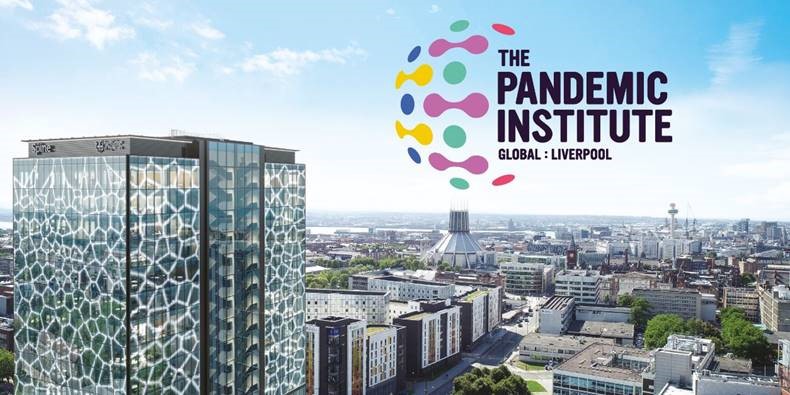Liverpool’s Pandemic Institute awards almost £500k for monkeypox research
Almost half a million pounds has been awarded to Liverpool’s leading health and life science researchers to help treat and stop the spread of the growing global threat of monkeypox.

The funding call has a total budget of £484,257 and will help to finance research into the body’s immune response to support vaccine development, studies of new drug treatments, and understanding of stigma around the disease. It will also underpin investigations on the origins of the outbreak in Africa, studies of transmission and spread, as well as development of rapid diagnostics.
One of the projects is led by Liverpool John Moores University (LJMU) and focuses on public understanding of the virus and its spread. Dr Mark Forshaw, an expert in the psychology of health at LJMU, said:
“I’m delighted to be working with The Pandemic Institute on this global issue. In order to contain the outbreak it is vital that the public understands this virus, how it spreads and how best to treat it.”
Another awardee, Dr Ana Karina Pitol García, a microbiologist research associate at Liverpool School of Tropical Medicine whose project looks at transmission of monkeypox, said: “Monkeypox virus is most commonly transmitted through direct skin-to-skin contact. Nevertheless, the virus can also be transmitted through contact with contaminated items such as clothing and linens.
“We are investigating how long the virus survives on the skin and different materials, and how much is transferred by these routes. This information is crucial to help control the spread of the disease.”
Monkeypox is a rare infection which is mainly spread by wild animals in parts of west or central Africa. The risk of catching it in the UK tends to be low, however, recently the total number of cases reported has risen to over 2,000. Gay and bisexual men have been urged to pay extra attention to the symptoms of the virus as the UK Health Security Agency states the majority of cases identified to date have been among this group.
Professor Tom Solomon CBE, Director of The Pandemic Institute, said: “We are currently dealing with an unprecedented outbreak of monkeypox in the UK and beyond. It is important for us to respond quickly to this emerging threat.
“In just a matter of weeks The Pandemic Institute has identified, via a peer review process, eleven high- priority projects to address this new threat, and respond to the G7 challenge of producing diagnostics, treatments and vaccines within 100 days of a major emerging infection.
“This monkeypox funding call has a total budget of £484,257 and covers all Pandemic Institute domain principles to ‘Predict, Prevent, Prepare, Respond and Recover’ from emerging infection threats.”
For more on Liverpool’s Pandemic Institute click HERE.
